
This article is more than
1 year oldIsrael says it has immediately struck back after Hezbollah launched a “massive” ballistic missile at Tel Aviv.
The Israeli military said on Wednesday that for the “first time ever” a missile fired by Hezbollah reached the Tel Aviv area before being intercepted by Israel’s air defences.
“It is the first time ever a Hezbollah missile reached (the) Tel Aviv area. It was intercepted by IDF (the Israeli military),” an army spokesman told AFP.
In a separate briefing, military spokesman Nadav Shoshani said that the firing of the surface-to-surface missile at Tel Aviv was an “escalation” on the part of Hezbollah.
“Hezbollah is definitely trying to escalate the situation... this is just part of it,” Lieutenant Colonel Shoshani said.
“They are... trying to terrorise more and more people.”
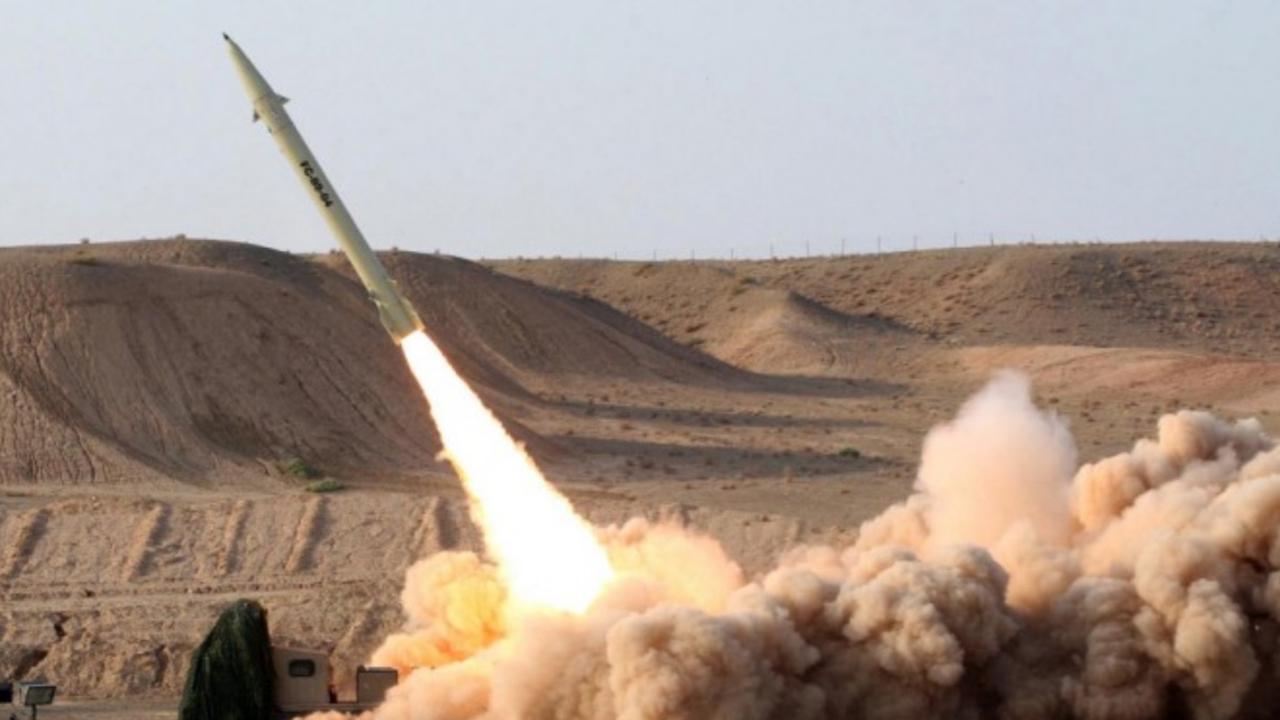
The military said it struck the launcher, which fired the missile in the Nafakhiyeh area of south Lebanon.
Polish military publication Visegrád 24 reported: “The 9 metre long rocket carries a warhead with up to 500 kg of high explosives.”
The suspected Fateh-110 missile used in the failed strike is designed to inflict “mass casualties” it was reported.
Locals reported hearing sirens sound in the vicinity of Mount Meron in the Western Galilee regions of the country.
The United Nations Security Council said it will hold an emergency meeting on the crisis in New York on Wednesday, while UN Secretary-General Antonio Guterres warned the situation was critical.
Meanwhile, Israeli military said it was carrying out “extensive” air strikes in south Lebanon and the eastern Beqaa Valley after Hezbollah fired a ballistic missile that reached the Israeli city of Tel Aviv.
“The IDF (Israeli military) is currently conducting extensive strikes in southern Lebanon and the Beqaa area. Details to follow,” the military said in a statement.
At least 15 people have been killed and around 50 wounded today’s Israeli strikes across Lebanon. According to Lebanese officials, five different locations were targeted, with Israel now expanding the areas of engagement.
The beach resort town of Jiyyeh just south of Beirut and Maaysrah has been hit, with strikes also being carried out in Bint Jbeil, Tebnin and Ain Qana in the south.
The village of Joun in the Chouf district was also struck, alongside Maaysrah in the northern Keserwan district.
‘On the brink’: Israel crisis worsens
It came as Israel confirmed it had killed a top Hezbollah commander in its latest attacks on Lebanon.
Ibrahim Mohammed Kobeissi was, in Hezbollah’s words, “martyred on the road to Jerusalem” on Wednesday. That is the phrase the organisation typically uses to refer to militants killed in conflict with Israel.
Kobeissi was among six people who died in a strike on the southern suburbs of Beirut, according to the Israeli military, which described him as “the commander of the missile and rocket network of the Hezbollah terrorist organisation”. The strike also injured 15 people.
Hezbollah, a political party and paramilitary organisation, is considered a terrorist group by Australia, as well as other countries, including the United States and United Kingdom.
Israel said Kobeissi had been in command of several rocket units, including a precision-guided missile unit, and was hit alongside other commanders of Hezbollah’s rocket force.
“Kobeissi was an important source of knowledge in the field of missiles and had close ties with senior Hezbollah military leaders,” the Israeli Defence Forces said.
Spokesman Daniel Hagari told a media briefing that “at least two” other commanders from Kobeissi’s force were also “eliminated”.
Hezbollah and its arch-foe have been exchanging near-daily cross-border fire since the Gaza war erupted last October, in response to Hamas’s surprise attack on southern Israel.
The violence has spiralled dramatically in recent days, raising fears of an all-out war.
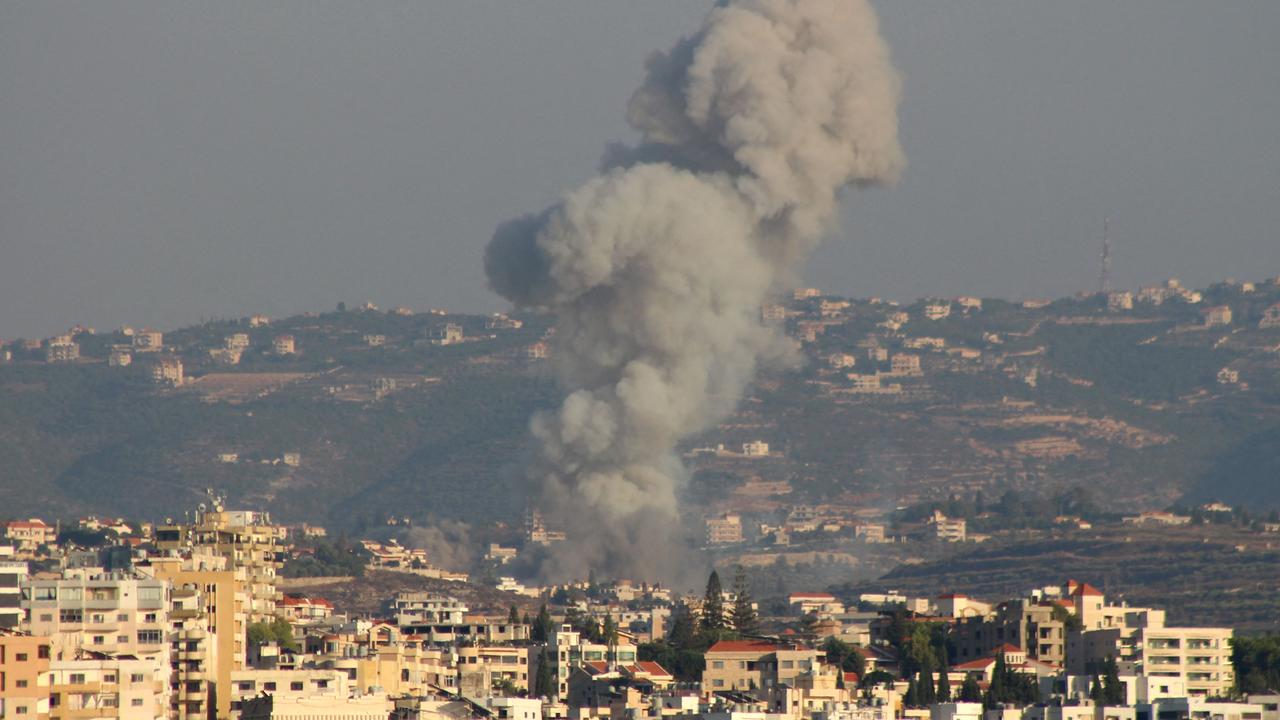
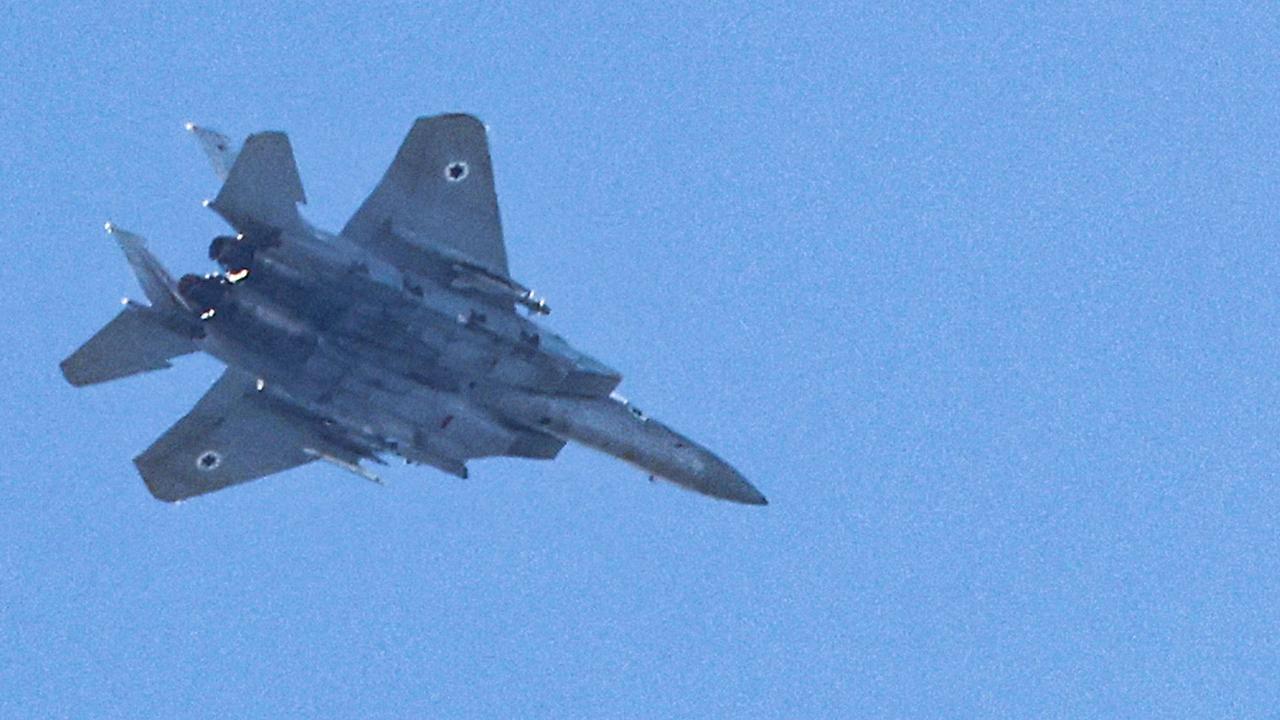
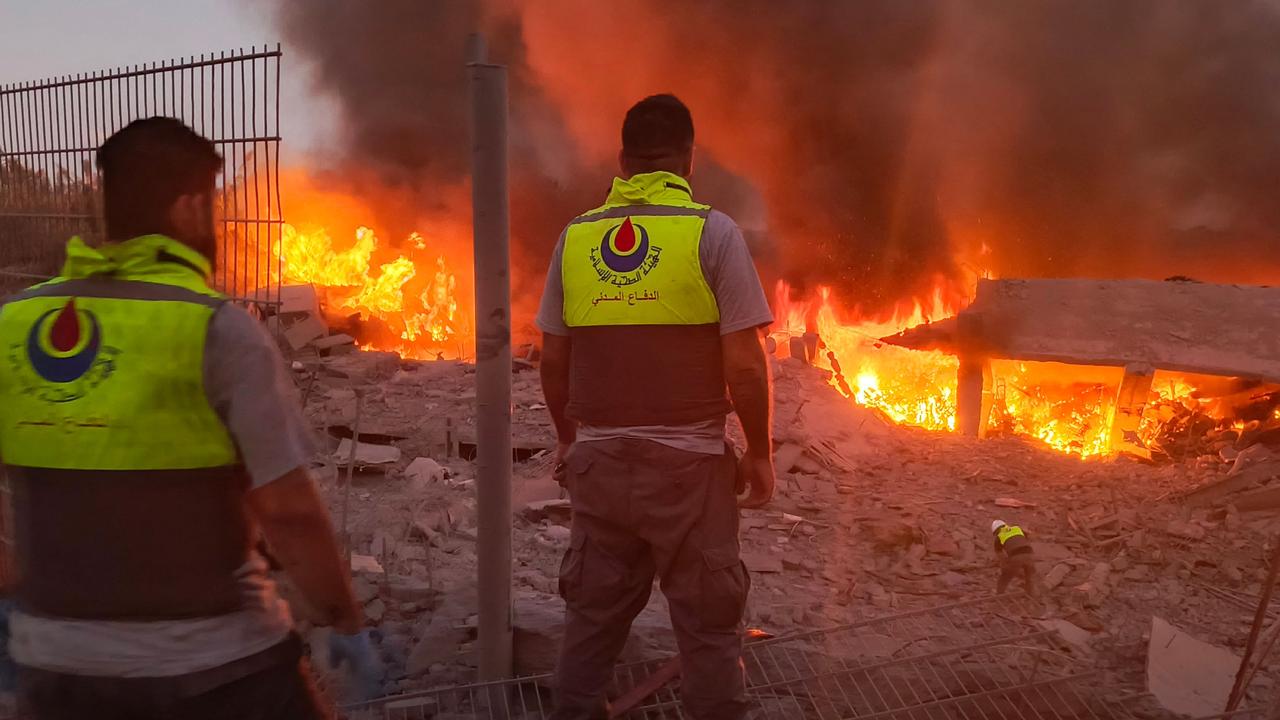
Region ‘on the brink’ of ‘full-scale war’
World leaders lined up at the United Nations on Tuesday to call on Israel to refrain from launching a full-scale war in Lebanon, with the organisation’s chief warning the situation was on the “brink”.
The UN General Assembly, the high point of the international diplomatic calendar, came after
authorities said the death toll from Israel’s strikes had risen to 558, 50 children among them.
“Full-scale war is not in anyone’s interest. Even though the situation has escalated, a diplomatic solution is still possible,” US President Joe Biden said in his farewell address to the global body before he steps aside in January. He’ll either be replaced by Vice President Kamala Harris, or by former president Donald Trump, depending on the outcome of November’s US presidential election.
“In fact, it remains the only path to lasting security to allow the residents from both countries to return to their homes on the border safely,” Mr Biden said.
His remarks drew disappointment from Lebanon’s foreign minister Abdullah Bou Habib, who said they were “not promising” and “would not solve the Lebanese problem”.
“We should all be alarmed by the escalation. Lebanon is on the brink,” UN Secretary-General Antonio Guterres said when he opened the gathering.
Israel’s ambassador to the UN, Danny Danon, said his country was “not eager” for a ground invasion of Lebanon.
“We don’t want to send our boys to fight in a foreign country,” he said.
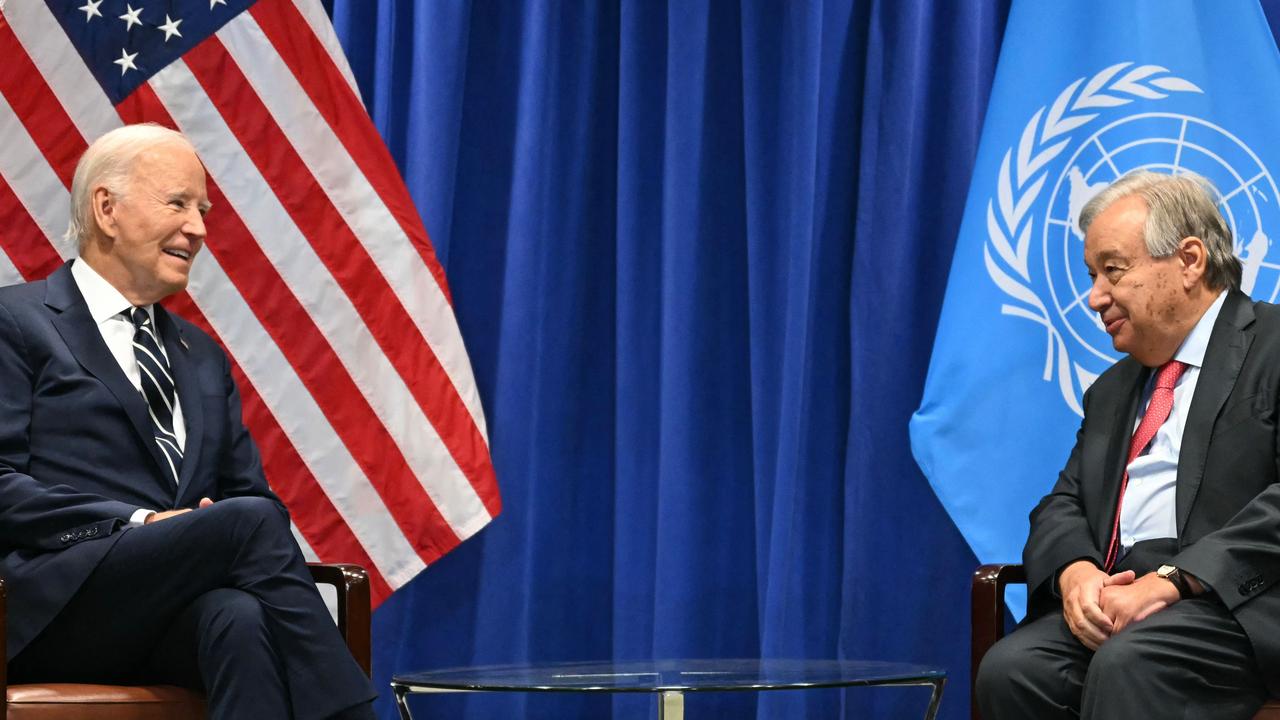
‘A non-stop nightmare’
It is unclear what progress can be made to defuse the situation in Lebanon, with efforts to broker a ceasefire in Gaza, which Israel has relentlessly pounded since last October, coming to nothing at the moment.
On Tuesday, Mr Biden pushed again for an elusive ceasefire between Israel and Hamas, telling the UN it was time to “end this war”.
Qatar, which has acted as a mediator, accused Israel of obstructing Gaza ceasefire talks, with Emir Sheikh Tamim bin Hamad Al-Thani saying “there is no Israeli partner for peace” under the government of Prime Minister Benjamin Netanyahu.
“We will continue our efforts of mediation to resolve the disputes through peaceful means,” he added, however.
Turkey’s controversial President, Recep Tayyip Erdogan, accused Israel of dragging the entire region “into war”.
“Not only children but also the UN system is dying in Gaza,” he said in a scathing speech.
Mr Guterres cautioned against “the possibility of transforming Lebanon (into) another Gaza”, calling the situation in the Palestinian territory a “non-stop nightmare”.
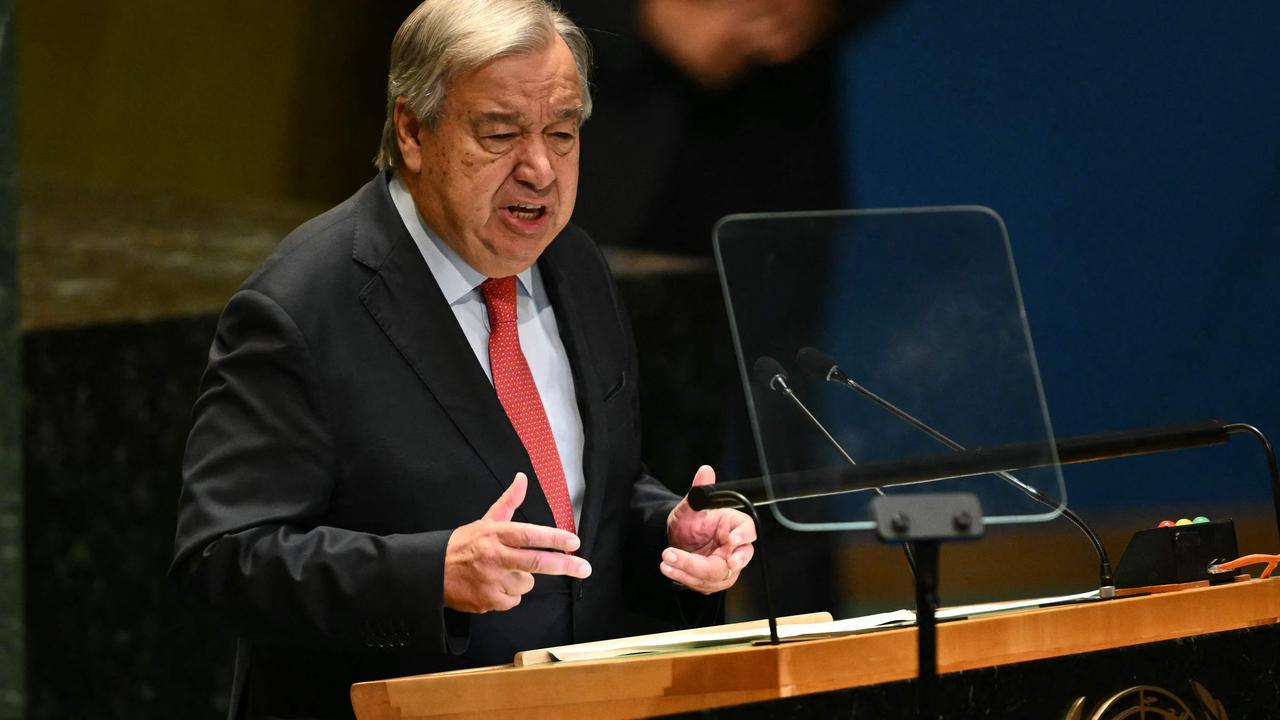
European Council President Charles Michel said that Israel had the right to exist and defend itself, but without inflicting “collective punishment” on civilians living in areas targeted by its military.
President Masoud Pezeshkian of Iran, which backs Hezbollah in Lebanon and Hamas in Gaza, condemned the UN’s “senseless and incomprehensible” inaction to resolve the situation.
‘Charade of hypocrisy’
British Foreign Minister David Lammy also sounded the alarm over the escalating violence in Lebanon.
“I am very worried about the risk of escalation, and this breaking into a wider regional conflict,” he told AFP as Britain announced it was deploying military units to Cyprus to assist with any evacuation of its citizens from Lebanon.
Responding to criticism of Israel, Mr Danon called the General Assembly debate an “annual charade of hypocrisy”.
Since last year’s annual gathering, when Sudan’s civil war and Russia’s Ukraine invasion dominated, the world has faced an explosion of crises.
The October 7 attack by Palestinian group Hamas on Israel resulted in the deaths of 1205 people and prompted a military response in Gaza that authorities say has killed at least 41,467 Palestinians, many of them civilians.
Violence has raged across multiple fronts in the Middle East since the crisis erupted, with the conflict exposing deep divisions at the UN.
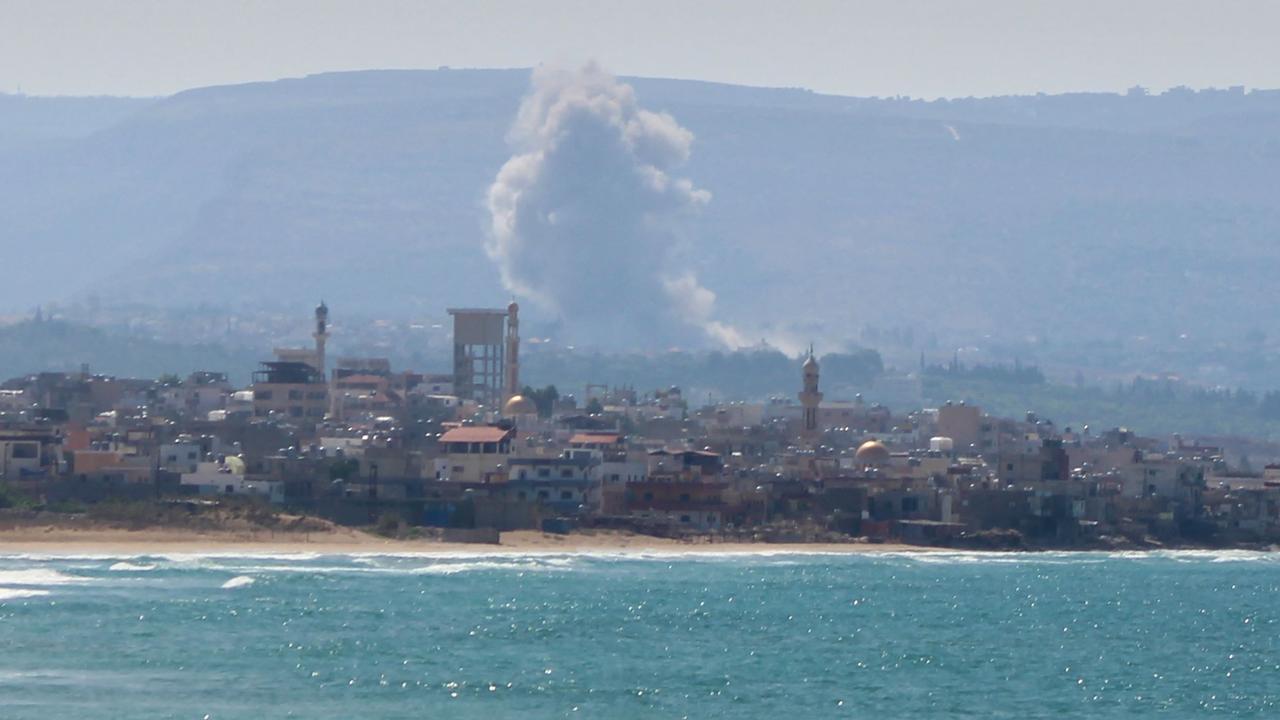
Hamas took 251 hostages back into the Gaza Strip during their attack on southern Israel last October. A year later 64 people, including two children, are still being held in captivity. Israel believes they are alive.
Hamas considers the hostages to be key bargaining chips in its negotiations with Israel, as it seeks the release of Palestinian prisoners held in Israeli jails.
Of the 251 hostages seized by militants on October 7, 117 have been freed, most of them women, children and foreign workers.
Most were released during a week-long truce in late November in exchange for 240 Palestinian prisoners.
Nearly a year later, Israel still believes 64 hostages still held in Gaza are alive. The army has confirmed 70 others are dead, 33 of whose bodies are still in Gaza.
The military has repatriated the bodies of 37 hostages who either died in Gaza or were killed on October 7 and taken to the territory.
Of the 64 thought to be alive, 57 are Israelis, though some of them have more than one nationality. Another six are Thai nationals and one is Nepalese.
Fifty-two are men and 10 are women. Eleven are military personnel. Two are children.
The youngest hostage, Kfir, was just eight-and-a-half months old when he was kidnapped. The other child is his brother Ariel, who was only four years old when he was taken to Gaza.
Hamas has said the two children are dead, but Israel has not confirmed this.
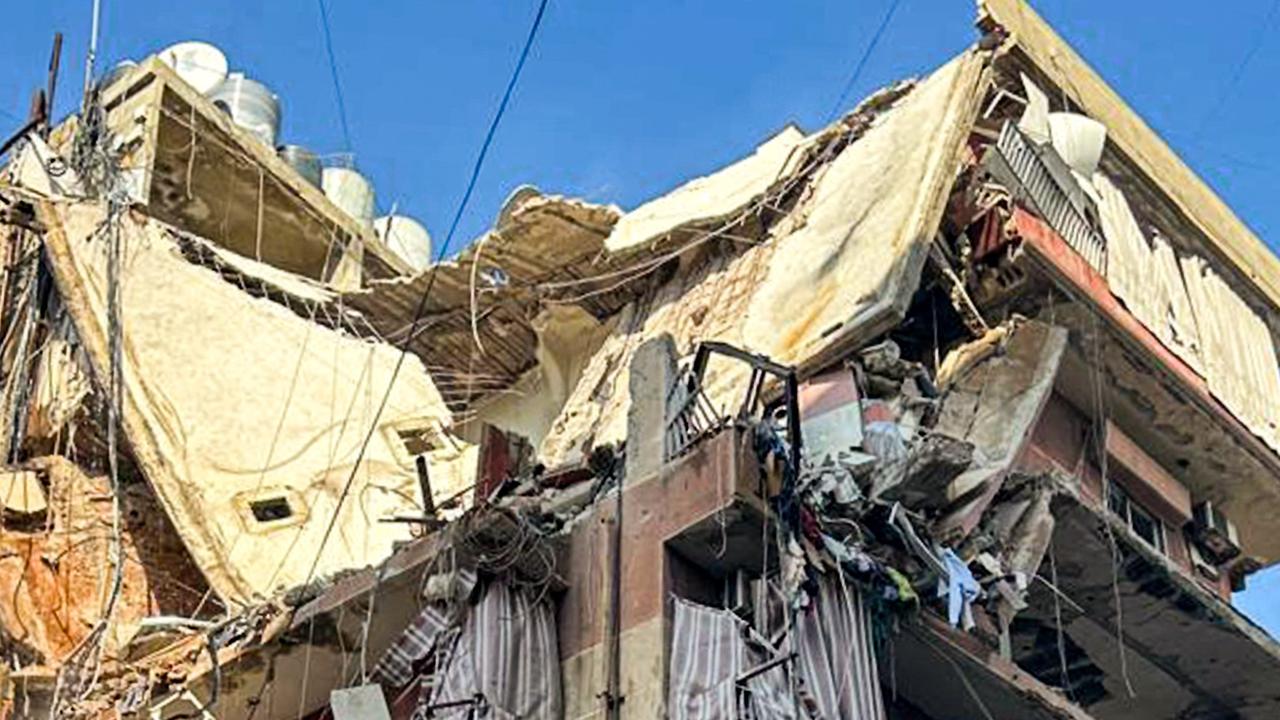
No proof of life
Since the truce between Israel and Hamas ended on December 1, only seven other hostages have been freed alive, all during Israeli military operations.
With no proof of life, uncertainty remains over whether the 64 are actually still alive.
The armed wing of Hamas said on August 12 that its fighters had shot and killed an Israeli hostage and injured two others. Hamas has announced on several occasions deaths of hostages that have not been confirmed by Israel, leaving families in agonising limbo.
At least 28 hostages are confirmed to have died in Gaza since the start of the war.
Three were killed in error by the Israeli army on December 15. They were Yotam Haim, 28, Samer El-Talalqa and Alon Shamriz, 26.
The Israeli army has accused Hamas of executing six others in August: Hersh Goldberg-Polin, Carmel Gat, Eden Yerushalmi, Alexander Lobonov, Almog Sarusi and Ori Danino. They were found dead by soldiers in a tunnel in Rafah, in southern Gaza.